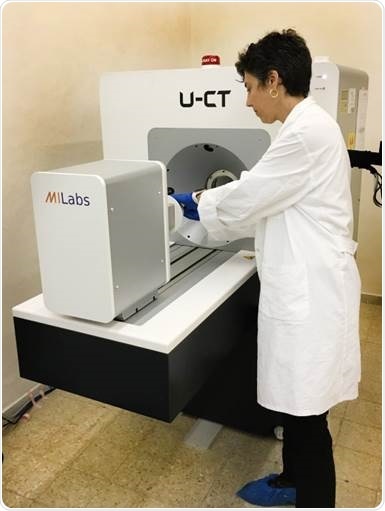Aug 2 2018
A MILabs dual-energy, ultra-high resolution U-CT system has been installed at The Hebrew University of Jerusalem Israel (HUJI). Under the direction of Professor Galia Blum, this institute has established an internationally renowned research program, focused on drug design, delivery, and therapy. The Blum Lab uses synthetic chemistry methods for generating new probes that will be used for simultaneous non-invasive imaging and real-time treatment of pathologies. Most research projects in the Blum Lab combine chemical synthesis, cell biology, biochemistry, microscopy and in vivo imaging. With the addition of MILabs’ latest U-CT system, the HUJI expects to further accelerate drug discoveries in several pathologies such as cancer, atherosclerosis, arthritis and autoimmune diseases.

“We have generated novel activity-based probes labeled with either gold or iodine, theses probes stay bound to specific tissue and enable its detection by CT. Our probes target a specific set of enzymes called proteases that are highly active in specific diseases thereby enabling molecular imaging and disease detection,” said Prof Galia Blum, Principal Investigator at Institute of Drug Research, The School of Pharmacy. “We are using the MILabs’ ultra-high resolution CT to detect our novel gold labeled probes in cancerous tissue as well as in atherosclerotic plaques, the MILabs system is a perfect fit to accelerate our exciting research.”
Prof. Beekman, CEO/CSO of MILabs adds:
We are very pleased that this renowned Institute of Drug Research has selected MILabs’ ultra-high resolution in-vivo microCT to further advance its research work. Through extensive R&D, we have succeeded at developing a very dose-efficient X-ray CT system and we are confident that Prof. Galia Blum will be able to push the limits of microCT detection sensitivity using our U-CT with their new class of iodinated nanoscale activity-based probes”.